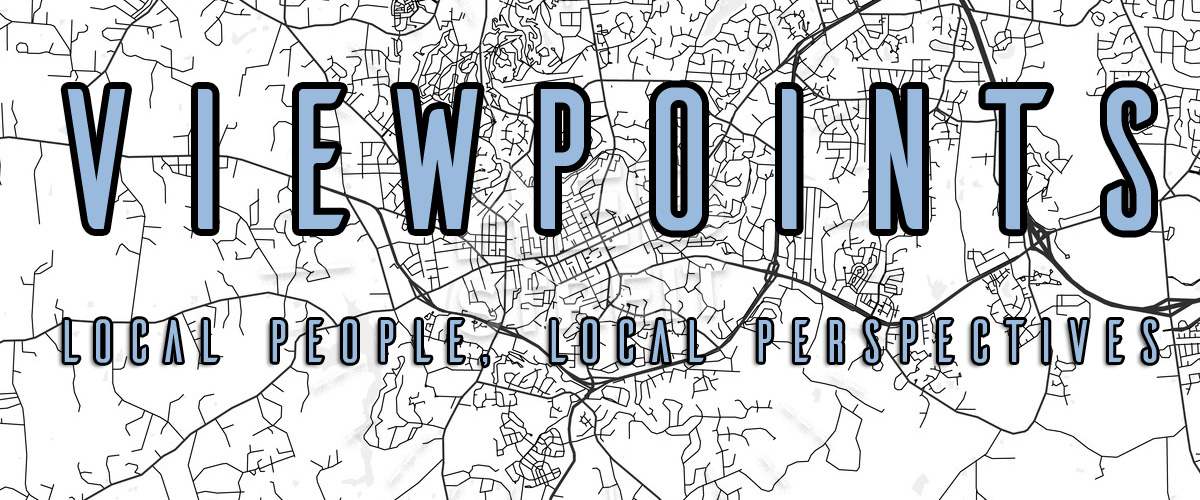
“Viewpoints” is a place on Chapelboro where local people are encouraged to share their unique perspectives on issues affecting our community. If you’d like to contribute a column on an issue you’re concerned about, interesting happenings around town, reflections on local life — or anything else — send a submission to viewpoints@wchl.com
In North Carolina, Protecting the Most Vulnerable Only Applies to Those That Are ‘Free’
A perspective from Asia Carter
The COVID-19 pandemic has caused tremendous damage to the economy, educational system, healthcare system, and community at large. There has been progress made since the inception of the COVID-19 pandemic with the development of a vaccine and the adaption of new social norms such as mask-wearing and social distances. However, there is still a huge inequality that exists, and this can be seen in the continued deaths and illnesses as a result of the coronavirus.
Medical and public health professionals have deemed the most vulnerable populations to be those that have pre-existing illnesses that compromise their immune system, the elderly, and those with disabilities. There is not much focus on those that are deemed the most vulnerable of the vulnerable, incarcerated individuals.
The United States has the highest incarceration rates in the world, with Black and Brown people making up the majority of those incarcerated. 1 in 9 Black men aged 18 and older are behind bars compared to 1 in 106 White men aged 18 and older. As a person who has family members that have previously been incarcerated and are currently behind bars in North Carolina, it’s sickening that the state believes their lives and well-being do not matter.
This global pandemic has emphasized the disparities and injustices that have always existed and continues to amplify its terrifying effects. COVID-19 has disproportionately impacted communities of color. Many communities of color are stricken with poverty, unequal access to healthcare services, inadequate or lack of housing, and lack of accurate information on the coronavirus and reducing its spread. When you learn that COVID-19 has outrageously affected communities of color it should be to no surprise that incarcerated individuals of color are also affected at higher rates.
The general population has a choice and the freedom to practice social distancing, have proper sanitation supplies, and overall protect themselves from contracting the virus. However, prisons and jails in North Carolina and across the nation are overcrowded with no substantial reduction in population. Those incarcerated are forced to be confined to their cells with other inmates with not enough space for quarantine ultimately increasing their chances of illness and death.
North Carolina’s jails and prisons have a population of about 66,000 individuals. Reduction in the prison population will allow there to be fewer people in the already overcrowded prisons and jails and reduce exposure for inmates and staff that enter the facilities. Many people currently incarcerated are in prison for minor technical offenses and/or unable to pay their fines for release. Amongst these individuals are those that are deemed most vulnerable, the elderly, pregnant individuals, and those with underlying health conditions.
Some states have started discussing plans to release people under a set of eligibility criteria. Although, 3,500 individuals were released earlier this year as a result of a lawsuit from the NAACP we need more releases, and we need in now. We need Governor Cooper to act in North Carolina to make substantial progress towards decarceration to protect all people from the harmful effects of contracting the coronavirus.
A concern may be present among many people around the potential for rising crime rates from formerly incarcerated people. It is important to reallocate funds into providing the necessary support and resources to help these individuals get acclimated back into the larger society and provide aid to their individual needs.
Prioritizing the release of those incarcerated shows a priority for not only the individuals that are behind bars living in these unsafe living environments but also accountability for the individuals working in these facilities as well. There are so many people in and out of these facilities daily and then returning to their respective communities and families increasing the potential of exposure. A call to release those incarcerated is for their protection and the entire community. Fellow North Carolinians interested in aiding in this effort should contact the governor’s office and voice your concerns and demand for action to be taken immediately.
We hope one day to live in a world without humans being locked up in cages. This pandemic is bringing to light whose lives are valued above others. I hope that we will reevaluate the priorities in North Carolina and create policies that will lead to a safer, and healthier life for those on the inside and outside of carceral facilities.

“Viewpoints” is a place on Chapelboro where local people are encouraged to share their unique perspectives on issues affecting our community. If you’d like to contribute a column on an issue you’re concerned about, interesting happenings around town, reflections on local life — or anything else — send a submission to viewpoints@wchl.com
Chapelboro.com does not charge subscription fees. You can support local journalism and our mission to serve the community. Contribute today – every single dollar matters.

